|
John Fetterman is the current Mayor of Braddock, Pennsylvania. Fetterman earned a bachelor's degree in finance from Albright College in 1991 and a master's degree in Public Policy from Harvard University. He moved to Braddock in 2001 to serve with AmeriCorps and start a non-profit organization, Braddock Redux.
He won the Braddock mayoral election in 2005 by one vote, and was re-elected in 2009 and 2013. As mayor, Fetterman has drawn international attention for trying to revitalize the economy in Braddock, with an article in The New York Times, an appearance on Comedy Central’s “The Colbert Report” and a Levi’s jeans ad. He has made equality, environmental protection, gay rights, immigration and marijuana legalization major campaign issues. Fetterman is a self-described democratic socialist. He ran for the United States Senate in 2016, but was defeated in the Democratic primary. He went on to be elected the lieutenant governor of Pennsylvania on the Tom Wolf ticket.
John’s Challenge; Be an educated voter.
Connect with John Website If you liked this interview, check out episode 134 with Gisele Fetterman or any of my other interviews with Pittsburgh movers & shakers.
Underwritten by Piper Creative
Piper Creative creates podcasts, vlogs, and videos for companies. Our clients become better storytellers. How? Click here and Learn more. We work with Fortune 500s, medium-sized companies, and entrepreneurs. Sign up for one of Piper’s weekly newsletters. We curate links to Expand your Mind, Fill your Heart, and Grow your Tribe. Follow Piper as we grow YouTube Subscribe on iTunes | Stitcher | Overcast | PodBay
1 Comment
Mixing things up from the last two mixes we shared. Samuel Andres is the resident DJ for LUXE Creative in Pittsburgh.
Track List All Night Long (Deep mix) - A2HP Vince, Dave Leatherman Booty Call (Vocal Mix) - Jay Vegas Fantasy (Jay Vegas Disco Remix) - Housemechanix, Marley Munroe Surrender (Original Mix) - Shan, Gerd Janson, Gerd Janson & Shan Gimmie What I Want (Original Mix) - Ron Carroll, Aires Adora Ever Been Feat. Smashing Beat (Original Mix) - Samuele Sartini Corrida (Original Mix) - Charles J Confess (Original Mix) - ATFC, Seamus Haji Stardust (Original Club Mix) - Raul Mendes, Jude & Frank Attend my one-day conference January 27th in Pittsburgh. Learn more here. Samuel’s Challenge; Only buy the songs that make you feel something in your chest. Connect with Samuel LUXE Creative samuel@luxecompanies.com If you liked this interview, check out episodes 259 with Totally Normal and 170 with Dj JRod. Subscribe on iTunes | Stitcher | Overcast | PodBay
How do you go from studying journalism in the midwestern United States to revolutionizing the education system of another continent? I don’t know. So I asked Audrey Cheng about her company.
The Moringa School is enabling a whole generation of high-potential, proactive people passionate about technology to become top mobile and web developers by equipping them with skills to do so. Through top quality teachers and a curated curriculum, the school aims to world-class developers in Africa. Founder Audrey Cheng has partnered with Hack Reactor, a top Silicon Valley coding school, to develop a world-class intro-to-programming course and an immersive, intensive 19-week program to train top mobile, web and front-end developers. The World Bank has chosen Moringa School to be their Middle East and Africa location in their study on the effectiveness of coding bootcamps in emerging markets. Attend my one-day conference January 27th in Pittsburgh. Learn more here. Audrey’s Challenge; Be aware of your emotions. Pause. And tell yourself, “It’s going to be ok.” Connect with Audrey Audrey's Twitter Moringa’s Twitter Website If you liked this interview, check out previous episodes with sous vide entrepreneur Lisa Fetterman and angel investor Li Jiang. Subscribe on iTunes | Stitcher | Overcast | PodBay 
Beth Caldwell is an author, speaker, business success strategist and a host for Pittsburgh BizTV Shows. Since 2014, she has been a global instructor with the Steve Harvey Success Institute. She is also a columnist for the Pittsburgh Business Times newspaper and Smart Business magazine, but is best known as the founder of Pittsburgh Professional Women and Leadership Academy for Women.
Recognized by Pittsburgh Magazine as an influential and innovative leader, Beth was named a “40 Under 40″ winner the day before her 40th birthday. In October she was recognized with the Pennsylvania Woman of Courage Award. Beth teaches workshops on leadership, business, and inspiration to audiences worldwide. Attend my one-day conference January 27th in Pittsburgh. Learn more here. Beth’s Challenges; Stop trying to do everything at once and Stop making decisions based on what other people might think. Beth’s Eight Easy Ways to Enjoy an Effective 2018 Connect with Beth From Frantic to Focused: How to Shift Your Life from Out-of-Control to Streamlined and Successful Website If you liked this interview, check out these interviews with social broadcaster Sunny Lenarduzzi and Super Connector Larry Gioia. Subscribe on iTunes | Stitcher | Overcast | PodBay
Employers are slowly embracing remote work and flexible systems as the deployment of the digital age accelerates. Why are moms being left out of the fun?
Erica Peterson is the Founder of Moms Can: Code, an online community for current and future moms who code. She sits at the nexus of tech talent and employers looking to gain an edge. She’s also inspired quite a few new entrepreneurs. Erica is passionate about exposing women and children to STEM and was recently selected as a member of The Incline’s Who’s Next: Education class for her work as Founder & Board President of Science Tots. Attend my one-day conference January 27th in Pittsburgh. Learn more here. Erica’s Challenge; Call 5 moms you know and tell them about Moms Can Code. Connect with Erica Website If you liked this interview, check out episode 118 with Kevin Kelly where we discuss the future of technology and the forces shaping society. Subscribe on iTunes | Stitcher | Overcast | PodBay
Ryan is one of the engines stirring the pot of the Pittsburgh nonprofit scene. In addition to incubating young organization through Social Venture Partners, he also actively consults using his experience in sales, partnership development, strategy execution, and sustainable investment analysis.
Prior to CitizenCity, Ryan led U.S. outreach for Humanity in Action–an international human rights organization that cultivates ethical leaders. We discuss his background and his views on what makes a project successful. Ryan’s Challenges; If you’re an entrepreneur, think about how your core tenets could help solve a community challenge. If you’re in Pittsburgh and want to be more involved in your philanthropy, come join SVP. Connect with Ryan Citizencity Social Venture Partners Mentioned Effective Altruism #15 Ian Neumaier If you liked this interview, check out more interviews with Pittsburgh's Movers and Shakers.
Underwritten by Piper Creative
Piper Creative creates podcasts, vlogs, and videos for companies. Our clients become better storytellers. How? Click here and Learn more. We work with Fortune 500s, medium-sized companies, and entrepreneurs. Sign up for one of Piper’s weekly newsletters. We curate links to Expand your Mind, Fill your Heart, and Grow your Tribe. Follow Piper as we grow YouTube Subscribe on iTunes | Stitcher | Overcast | PodBay
In their new book, Elephant in the Brain, Kevin & Robin explore the selfish motives that are driving everything we do. From conversation and consumption, to medicine and religion, evolutionary psychology can explains all of the quirky behaviors we perpetuate through the perspective of self-interest.
Kevin Simler is a writer and software engineer currently living in San Francisco, CA. He writes a popular blog called Melting Asphalt. Kevin joined the Peter Thiel-founded Palantir Technologies in 2006 where he worked for 7 years as an engineer, engineering manager, and product designer. Robin Hanson is an associate professor of economics at George Mason University and a research associate at the Future of Humanity Institute of Oxford University. He has a PhD in social science from Caltech, master's in physics and philosophy from U. Chicago, and worked for nine years in artificial intelligence as a research programmer at Lockheed and NASA. He helped pioneer the field of prediction markets and blogs at OvercomingBias.com. Attend my one-day conference January 27th in Pittsburgh. Learn more here. Kevin’s Challenge; Look inwards and try to be more intellectually honest. Robin’s Challenge; Give humanity a break. The Book Elephant in the Brain by Kevin Simler & Robin Hanson Connect with Kevin Website Connect with Robin Website If you liked this interview, check out past episodes like 255 with Dan Munro where we discuss the rising costs of healthcare and 55 with Morgan Housel where we discuss cognitive biases. You can also find Robin’s previous appearance on the podcast. Subscribe on iTunes | Stitcher | Overcast | PodBay Watson: So Robin, thank you so much for coming to my podcast, man. I really appreciate it. Hanson: Thanks for having me, Aaron. Watson: This is really fun. We're doing a bit of a run on futurism and looking a little bit further out. I think that's always a challenge for people to take a long-term view on any of their decisions. Whether it's thinking about their career a couple of years down the line or other kinds of life decisions, but your book age of E M, that's now out, is really taking a bit of a further view out there, kind of in the next hundred years, what can we expect? There's lots of speculation that gets rolled around the internet, but you've really hammered down on a pretty specific vision and idea. So to start off, I wanted to just give you the opportunity to talk a little bit about the core philosophy and ideas in your book. And maybe a little bit about where you got this idea, or what inspired you to kind of explore futurism and these types of predictions as a-- Hanson: So I've long been a science fiction and futurism fan. I've long been hanging around people who like to talk and think about this subjects. But when I finally went back to school, graduate school at the age of 34 to study social science and eventually become an economist, I was all the more impressed that, most futurism and science fiction just doesn't reflect much social science. Most of the people who do it like it, know a lot of physical science, but they don't know much social science. And so they tend to think that whatever speculations pop into their heads about social outcomes are pretty much the best anybody can do. But in studying social science, I thought that was very wrong. I thought you could learn a lot. And so in my first semester after graduate school, Christmas vacation, I wrote a little paper where I tried to apply my standard, first year economic concepts to a particular future scenario that I had heard about for a long time. Brain emulations wrote a little paper on that. I published it, the next year it was called if uploads come first, the crack of a future Dawn and that sort of set off to the side. And I continued on with my career. But that sort of stuck in the back of my mind. And later on when I had tenure and I had some freedom and I was trying to decide what project to focus on, that project ended up being my guest for my best choice. I heard about half the people who get a book project, never finish the book, and I wanted to pick something that would suck me in and get me to do it. So the basic attitude here is that, Project current trends forward, or you can imagine trends disrupting future technologies, or you can think about the social consequences of trend disrupting technologies. And it's that last third task that I've taken on, that a lot of people don't even think is possible. So under this point of view, you break the future into various kinds of very disruptive technologies that might show up, and in particular, which one might show up first, and then you try to take each scenario defined by which disruptive technology would show up first and analyze its consequences. So I've taken just one of those. I don't claim it has most of the probability. I'd say the future is important enough that it's worth having a hundred books, exploring a hundred scenarios. In which case we only need the scenario to be a 1% chance to be worth it. So the scenario I've chosen is brain emulations, our uploads, and we can explain what that is in a minute. And I've taken a quite unusual degree of focus and emphasis to work out the consequences of that one scenario. And in part, I'm trying to show people that you can do a lot working out the consequences of a very particular technology scenario in order to shame or inspire other people into doing the same for other scenarios. Watson: Yeah, it's very clear how much thought and how well built out your philosophy is just from your explanation of these ideas and different talks, the book on these further details and really what you're outlining, just to further clarify for the audiences. We've had these different areas as a species hunter gatherer to farming and agriculture, to the industrial revolution and your proposing a similar shift on the near horizon. So can you just go into a little bit more detail of what the age of that looks like and the underlying technology that is going to enable something like that? Hanson: Right. Well, just as you say, historical context, actually history does seem to be somewhat neatly broken into ages, which makes it then plausible to talk about what will the next age be, as you say, there was the age of animals before humans, the age of humans, hunter gatherers, the age of farming, the age of industries, these were in a sense, somewhat distinct ages and that they had distinct modes of production and ways people related, and they tended to have consistent growth rates internally. Each mode grew at a certain exponential rate. And then when the next mode show up, it was a sudden transition to a much higher growth rate. And so the idea is that could happen again sometime in the next century or so there could be another transition to an even faster growth rate, with a very different mode of production and a very different style of civilization. And the question is what could that be? So my key working assumption is that artificial intelligence, smart robots, is what makes this next big revolution possible. It's not my idea. Of course, original. Lots of people have talked about that when I'm focused on one particular kind of smart robot, a certain way to produce them brain emulations. And it’s happened to produce a kind of robot that's, especially human, especially similar to us and therefore more understandable. So the idea is to deport the software that's in the human brain today. If you have an old computer and it has software running on it, and you'd like to have software like that, running on a new computer. You could stare at the old software, try to understand its basic principles and then write new software on the new computer that acts like the old one. People sometimes do that. But another approach is to port the old software, that is you write an emulator on the new computer that makes the new computer look like the old computer to the software. And then you can just move the old software over. So we could do that for the human brain if we could emulate brain cells. So the idea is that we scan a particular person in high spatial and chemical resolution to see where all the cells are and inside each cell where the parts are and what chemical densities are there. And then we have models, computer models for how each of the cells work in terms of taking input signals and changing internal state and sending output signals. And if I have good enough models for all the cells. And we have a good enough scan showing where all the cells are and what type they are. Then we should have been able to make a good enough model of the whole thing. Good enough model would have the same overall input output behavior. So we could hook it up to hands, eyes, ears, and mouth, and we would send it signals in terms of the same way a person would get in terms of hearing things and feeling things. And then it would respond with the same sort of signals. And therefore, if we put it in a robot body or a virtual reality, we could ask it questions. It would talk back. We could ask it to do jobs that might do them. That's the thing that changes everything that is a brain emulation. Watson: This seems like it's related to the brain initiative that the white house put out a couple of years ago with the goal of mapping the entire brain. That's something that they're really pushing to do within the next decade. And that would be the kind of the underlying assumption that we have a much more nuanced understanding of the brain than we do today. Is that accurate? Hanson: Certainly mapping the brain is along the path toward producing an emulation. We're still a long way off. I wouldn't tell you what's going to happen in the next 10 or 20 or even 30 years, but plausibly within the next century. Watson: So let's just break down a little bit more. Once this emulation technology is possible, what would it look like? Who would get emulated? What would that process be? Aha. Maybe in the early stages and then as time moves on, would it get easier? Hanson: So most income in the world today goes to pay human workers. They're very valuable. If you could have a machine that's cheap that substitutes for human workers, you can make trillions of dollars selling that access to that machine. It's enormously valuable. So obviously the first things people will do is they will try to create emulations of productive people, lawyers, software, engineers, et cetera, and sell rent, access to those things. They can get a lot of money for their investment in their technology. So very early on, they will be searching for very productive people. People willing to work in this new world. People are eager to try out the new world and willing to accept all the strange changes that they'll experience there. And that will be the start of the age of them. When a lot of companies try to sell these new devices now very quickly, presumably in many firms will try to sell them and they'll push the cost down. In competition to the cost of the hardware. And as the cost of the hardware falls, then the number of these emulations will just explode. There'll be a vast number of these emulations and they will pretty much take over all the jobs that humans do. They will just be cheaper than humans all across the board. And they won't be like typical humans. They will be like the best humans. So there's no point if you can copy many different quality humans, not the copy, the very best and try to make a deal and sell access to those. So most emulations we'll probably copies of the few hundred, most productive humans that the few hundred humans that work best in the emulation world. So they are Nobel prize winner, Olympic gold medalist, billionaire head of state, that sort of quality people. So they are very human in the sense that their psychology and styles are near the human range, but they're not typically human in that they are just much more productive that will make them more smart, conscientious workaholic, middle-aged, perhaps religious, married. There's a bunch of parameters that we can predict about how they'll be different from ordinary people, just because they're very productive. But they are not strange aliens or crazy robot things that we can't understand. They're very human. Watson: I'm imagining some people might have a few hairs on the back of their neck standing up right now. Can you talk a little bit about what would happen to the non billionaires, the non elites, who aren't having an emulation made of them? What type of economic future they have? What relevance might they have the society? Hanson: So initially the ordinary humans own this entire new economy. They own all the firms. They all know the patents, they own all the real estate. And even if their percentage of the wealth of this economy slowly declines, they'll still own a lot of it. And this economy will grow very fast. It might plausibly double every month, rather than today at doubles every 15 years. So that's how fast your investments also would grow. So if you have any substantial investments, they might plausibly double every month. So collectively humans will be very rich and getting very rich fast. But how rich any one person is depends on how much wealth they have or have access to. So it would be very important to recommend to people that they try to diversify their assets. They try to buy insurance, they try to arrange sharing arrangements so that they are not stuck, not having anything. When a transition like this happens, basically the entire human race must retire. And if they have a decent retirement savings plan, they will all do very well. I see this Watson: it's really interesting to hear, this kind of futuristic take coming from such an economically grounded perspective. I think that, you know, just in my reading, exploring some of these topics, there's a lot of people who come at it purely from a technological standpoint, or just kind of making predictions from the standpoint of what will this technology enable or disable or take away. Are there any other ways in which economics has influenced your view and your development of this thesis? Hanson: Honestly, that is I'm mostly using economics in figuring out. The scenario here. So as we just said, humans basically retire and get rich quickly. So there honestly, isn't that much to say about the humans, but there's an enormous amount to say about the simulations. They are living in a very competitive world with their wages near their subsistence level. And so it's a more familiar Malthusian world and there's a lot we can analyze about that. Since we know that it's near subsistence and driven very much by productive considerations. We can analyze, sort of how many hours of work a day they make, how concentrated are labor markets. We can analyze how fast they typically run. Since simulations can go faster, slow, we can think about when they would make copies and when they'd be willing to erase the copies, we can think about them clustering together into cities versus being spread out over the land. We can think about their political concentration. We can think about, how well democracy might work. We can think about new units of organizations. We have a lot of ways to apply economics, to understand this new world. Watson: Will they be interacting socially or like when I think what some people will think of a robot or a computer, they think of just something that can grind away and work and work and work and never need time off. Never need to rest, never need to have kind of a social interactions that are so fundamental to the human existence. Hanson: So, this is where the fact that they were a human, like lets us analyze and understand them. So the best model for emulations are the most productive people in the world today. The people who are most celebrated, perhaps for being really good at their jobs. If you meet those people or see them, they do work a lot of their time. They tend to be workaholics. They tend to work as much of the time as they can and productively, make a contribution, but they do take breaks. They do go to lunch. They do socialize. Actually socializing is often an important part of many jobs. Not only do you need to interact with coworkers and bosses and clients and suppliers, you need to often play office politics and emulations will do all of those things because they are very productive and that's what very productive people do. Watson: And along with having these human qualities, kind of a fundamental human quality is the realization, the some people acceptance or fear of death, will these EMs ever pass on or are they going to basically exist infinitely? Hanson: So, because they can be represented as computer files, they can be immortal in the same way that houses and cars today can be a model that is, if you keep repairing them, they can keep lasting. So the question is not whether you can keep going it's whether you choose to and have the resources to. So one, I think safe, relatively reasonable prediction is that these emulations will have a limited career like. We already see with humans that they start out with young, with fluid intelligence and end up older with crystallized intelligence, but less able to learn new things and adapt. We see a similar phenomenon with lots of other complicated systems, including software systems. And so that probably happens for emulations too. And so eventually they can no longer compete with younger versions and may they must retire, but retirement can be a lot cheaper for emulations because they can just retire at lower speeds. So the cost of running emulation is proportional to the speed and that cost proportionality probably applies from human speed up to a million times human speed and dallying down to 1 million of human speed. So it's a very wide range. So that means-- Watson: Is that work rate or is that processing speed? Can you just-- Hanson: So, the brain is a very parallel system. And so in general, with parallel programs, the more processors you add, the faster it can run. And so basically if you want to make a brain run faster, you can just add more processors and it'll run faster, or you can take more away and it'll run slower. So this range from a million times faster down to a million times slower is really just a range of how many processors you can add or how much you can slice up a processor. That's what's going on. You can just have a bigger emulation, a bigger computer, and then it would run the emulation faster. So the fact that you can make an emulation much cheaper by running it slower means that you very rarely need to fear death, but basically what you need to fear is going slow. So it's a different kind of thing to fear. It's a little less terrifying. So, if you run out of resources or you get fired or are you, something is stolen and you don't have as many resources as you might have, you'll have to be slower. And that means the world around you will speed up. What does it feel like to be slow? It feels just like, it feels to be fast, except the world looks different. The world speeds up. Watson: This is kind of mind bending to really think about this artificial intelligence or robots, having human emotions, human perspectives, human drives, and interests. And I think that also just calls into question what a political landscape would look like in this type of situation, where we're very used to right now, all sorts of craziness going on egos and campaign finance reform. We're in desperate need of that as well. Hanson: Sure. Watson: What does this future look like? Is there any hope for a more fair future perhaps? Hanson: Well, I think even to just think about it, you really have to step back from the world you live in and look across the whole sweep of history. I start my book out with a review of history, a very quick review, of course, just to emphasize how different the areas have been across history. Our farming ancestors from the previous era didn't have much democracy. They had Kings and councils sometimes, but not really democracy. That mostly seemed okay with them. And of course they had a wide range of policies. They applied our forage ancestors before them. They didn't have a literal democracy, but they had more of an informal consensus. They lived in small bands and they didn't really do anything unless they sort of got everybody to kind of agree. On what to do. And that is sort of the origin of, I think, of our sense of democracy. So I think the most dramatic thing that ever happened to humans was the transition from foraging to farming. Farming really was quite a different lifestyle and it didn't feel as natural. And so humans had enough cultural plasticity crank up the conformity and religious pressures enough to get forgers, to become farmers. And that meant to accept more domination, ranking, war, leaders, slavery, staying in one place, working more hours a day, monogamy. These were all things that didn't feel entirely natural to foragers, but that farmers came to acceptance as the right way because a culture was cranked up to make it happen. As we've gotten rich in the last few hundred years, I think that these pressures that turned us into farmers just don't feel as compelling. And we have slowly drifted back toward forager attitudes. So that has made us more interested in democracy. More leisure, more art, more travel, more democracy, less slavery, less tolerance for inequality and dominance. These are many of the trends over the last few centuries that can be attributed to reverting to forger habits and styles as we've gotten rich. That's all context for saying the emulation world gets poor again. That is the emulations at least are near subsistence level and they need to do a lot of behaviors that are somewhat odd for foragers and farmers and, industrialists really, and the sort of cultural pressures that turned foragers into farmers are available to turn us into the people who do the things that need to be done in the EM world. And so I do predict that they will become more farmers, like in the sense of having stronger social pressures, religion, conformity, in order to get them to do as they need. And the fears will be stronger because they will be near subsistence level. Those will be credible fears that will make them behave. So, because of all that, I think that creates a whole package of attitudes they'll have. And part of that will be, there'll be less eager for democracy. That doesn't mean they can't have democracy. They would just won't fight quite as hard. And the nature of the emulation world also means that one M one vote just doesn't work because they can vary by speeds. Enormously. If you just had one M one vote, then whoever wanted to win the election would just pay for trillions of very slow apps who could barely move fast enough to vote. That just didn't wouldn't work very well. So speed weighted voting might work and that's a plausible prediction for systems that use democracy, but they wouldn't necessarily be as eager for democracy as us and actually their leaders have more advantages than our leaders do. So when we have central leaders in our society, they have a number of disadvantages. One of them is that succession problem. How do they pick the next person? And when emulations can be a mortal, they don't necessarily have that succession problem. Leaders today also have a problem of trusting their associates who around them can they trust not to betray them in a time of crisis. Emulations can put recent copies of themselves around them to trust in a crisis. So that problem is reduced as well. So for a number of reasons, emulations would plausibly have more strong leaders and less democracy, but still have some democracy. Watson: Gotcha. You've laid an absolute monstrous amount of information on us here in the last 25 minutes. Robyn, I want to start wrapping up, but before we issue the personal challenge, the audience and direct people to learn more about the book. I want to take things back to a practical application level. You talked about how folks who have their retirement investments in order and other things like that are going to be okay when this transition starts to occur. Is there any practical advice? But you could give that you think is really important for folks who are moving into this age. Maybe it's our kids or their kids, things that we can be doing right now. Hanson: So again, it's not right around the corner, but when it comes, it'll come pretty fast. So it might be dangerous to sort of wait until you see it coming before you think about it, it might be ready to just better to just be ready to sort of have the sort of attitudes and stance that would handle it well. Whenever it comes. So, you know, centuries ago when the industrial revolution was starting . If you were a subsistence farmer out in the countryside, you heard about these factories starting up in the city. One attitude is, if you understood what was going to happen, you know, my poor descendants who are poor, you know, subsistence farmers in the countryside, they're going to be pushed aside. They're going to become a minor part of the society, and they're not going to matter as much anymore. And they won't run things. And boo-hoo me and my children. Another attitude might be, well, I want my children and their grandchildren to go try to join this new world to be, to go to the city, started the factories, to become part of the new industrial economy. I want them to have a chance and maybe they'll succeed. So that's also an attitude you can have about the simulation world. You could just identify yourself solely as a biological human and say, that's who I am in my, who my children are. And therefore we're going to lose out and be pushed aside and no longer be the center of attention. Or you can say I'd like my children or my grandchildren to try to their hand at being one of the successful EMs to become part of this new world. So, if you want to take that route, the odds are long, but what you want is for your children or grandchildren to be, seem very promising and flexible. That is the sort of people who could learn, whatever it takes to prosper in this new world who have the grit and determination and flexibility to deal with things when they're strange and things, when they're even hard to, you know, get along and, and survive and thrive in this new world. That's the sort of thing you might want your children and grandchildren and be ready to, to take a chance to, to compete and win in the new world. One of the things you may have to accept or be ready to accept, or you have your children ready to accept is the idea that the very first emulation process will probably be destructive. That is. It will take a real brain and slice off a real physical labor layer and scan that layer in two dimensions and then slice off another layer and scan that next layer. And so on until in the process of scanning the entire brain, it is sliced off layers, the entire brain, which can no longer be reassembled. It's destroyed the brain in the process of reading it so very quickly, the emulation world will have mainly demand for young people that is it'll want to scan young humans who are very capable, hopefully capable and flexible. And so the emulation world may plausibly try to entice parents of young children to allow them to destructively scan their young children say somewhat harsh and a dramatic scenario, but that's a scenario you should think about ahead of time, what your answer would be. Watson: Wow. Well, that is a lot to think about, Robin. You've answered a lot of questions here today and probably unearthed a few new questions from some of the people out there, listening. If they want to get some of those questions answered, we want to direct them to the book that is the age of M, work, love, and life, when robots will be earth. If people want to learn more about you, Robin, what are the digital coordinates that we can direct them to so that they can follow along? Hanson: I am Hanson. H A N S O N. Dot gmu.edu. And there's also a book page on the book agent, a G E O F E m.com, age of m.com. They can learn more about me or the book at either of those locations. Watson: Gotcha. We will link to that in the show notes. Ah, that'll be linked to @goingdeepwitherin.com slash podcast, the best place for show notes for this and every episode of the show. Robin, it's been a blast getting to listen to you, speak about this, the amount of thought that you've put into this vision is really helpful, helps crystallize things for a lot of people. And I appreciate that along with you sharing your time, I want to give you the mic one last time though, so that you can take it away with a personal challenge for the audience? Hanson: Sure. Well, I'm told that many of you are young people starting out your careers, wondering where to go or what you can do. And, I'd like to emphasize one key fact that many of you may not appreciate. Your lives will be long. You have a lot of time in a lifetime to pursue all sorts of odd projects that other people around you may not support. Yes, t would be nice to get a job doing what you'd like to do and have other people pay you for it. It would be nice to get support from other people around you who would join you in doing something and praise you and you do it. But those things aren't necessary to do a long term project because you live in a rich society and most of you are pretty smart. If you have a thing you really want to do, if you think there's something the world really needs, a project that really should happen and you have the determination and the ability to do it, you can just do it in your free time, over the rest of your lifetime. Most people listening have that sort of capacity. If there's something you really want done. That's the sort of person I have been in the sense that I've always had a number of projects I thought really should be done and if I couldn't convince other people around me to do them or to join me, to support me, I could just do them myself. And my main question has been, which of these many projects I should devote myself to. And for the last few years, this book, the age of EM– But I'll try to convince you that that's the project you should work on, or any of the other projects I personally work on is the one you should work on. I'll just say, if you think there are a number of neglected projects, things that should be done, things that are worth doing, you can just do them. You will have a long enough life and enough wealth and capacity that even in your free time as a hobby, you can do great things in a lifetime. Watson: I love it. And I love that my side project has gotten to intersect with yours, Robin. An excellent challenge, encourage people out there to take it and to check out the book once again. That's age of EM. Thank you so much for coming on Robin. Hanson: Great talking to you. Watson: We just went deep with Robin Hanson. Hope everyone out there has a fantastic day. 271 Transhumanism, Fighting the Opioid Crisis, and the Future of Wearable Tech with Ryan O’Shea1/2/2018
This interview threw me out of my element. What a great way to start the new year. I get pretty uncomfortable with the notion of transhumanism and implanting technology into the body through an elective procedure. Luckily, I got to talk it over with Ryan.
Ryan O’Shea is a spokesperson and advisor for biotechnology startup company Grindhouse Wetware, which is dedicated to creating technology to augment human capabilities. Ryan is also a founder of the Carnegie Mellon University-based artificial intelligence startup Behaivior, which uses wearables and machine learning to predict and intervene in human behaviors to promote positive health outcomes. Behaivior is currently a competitor in the $5 Million IBM Watson AI XPRIZE competition. Ryan has previously worked as a host and producer for the Pittsburgh ABC Television affiliate. He currently hosts the technology and futurism-themed Future Grind podcast and has produced talks around the world on the topic of citizen science, making, and biohacking Attend my one-day conference January 27th in Pittsburgh. Learn more here. Ryan’s Challenge; Question your assumptions. Why are you scared of these ideas? Reach out and continue the conversation. Resources Harrison Bergeron WaitButWhy on Elon Musk & Neuralink Ray Kurzweil Cyberpunk Connect with Ryan Future Grind Podcast Behaivior Grindhouse Wetware If you liked this interview, check out previous tech-focused episodes with Robert Scoble, Joseph Lubin, and Dennis Mortensen. Subscribe on iTunes | Stitcher | Overcast | PodBay |
Show NotesFind links and information referenced in each episode. Archives
August 2023
|
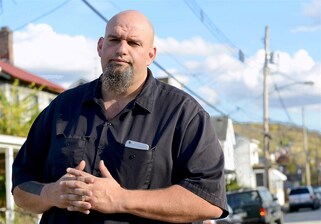
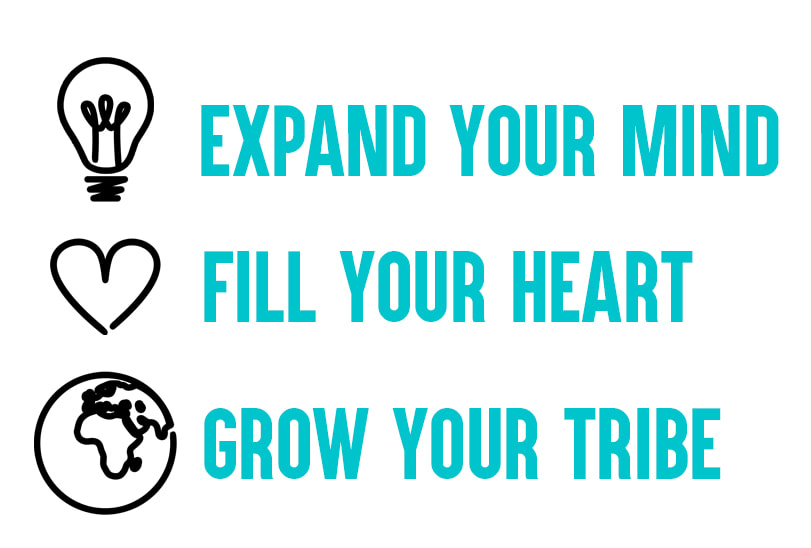
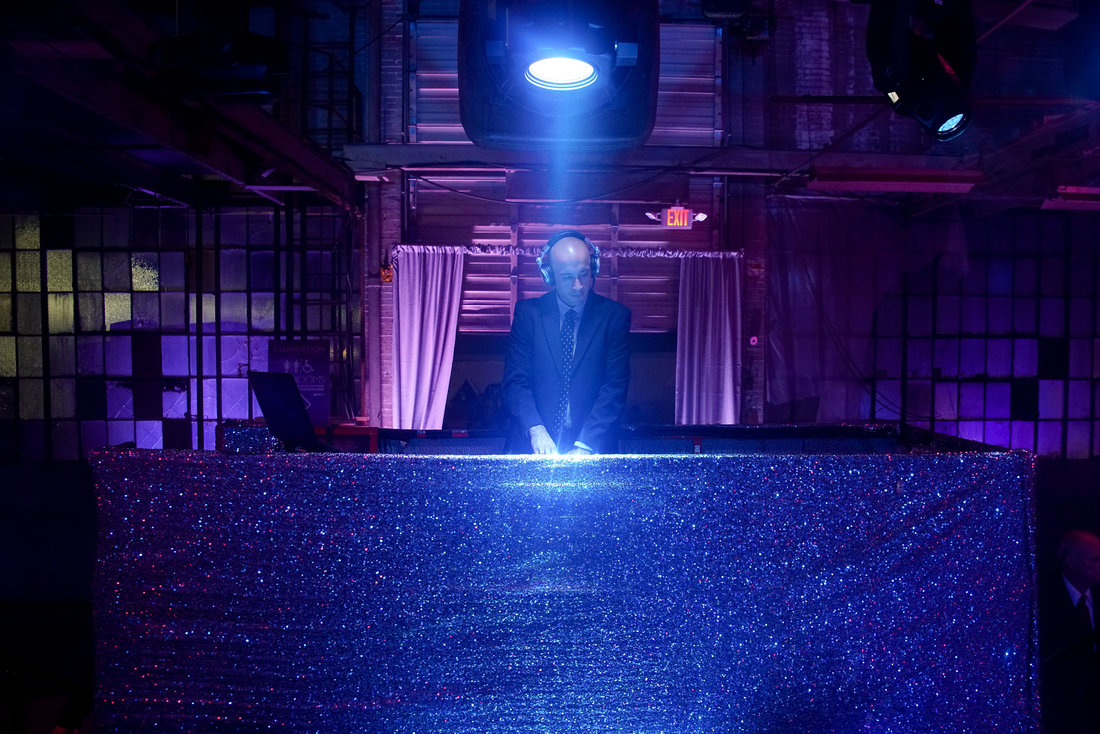




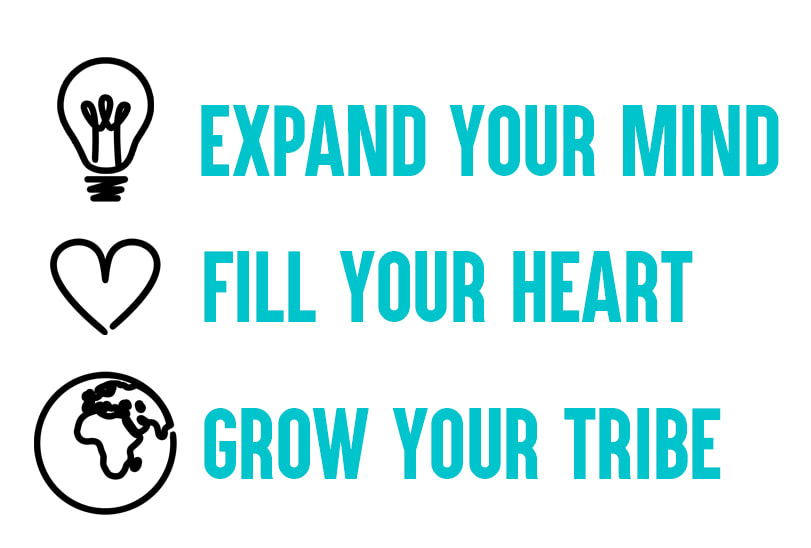

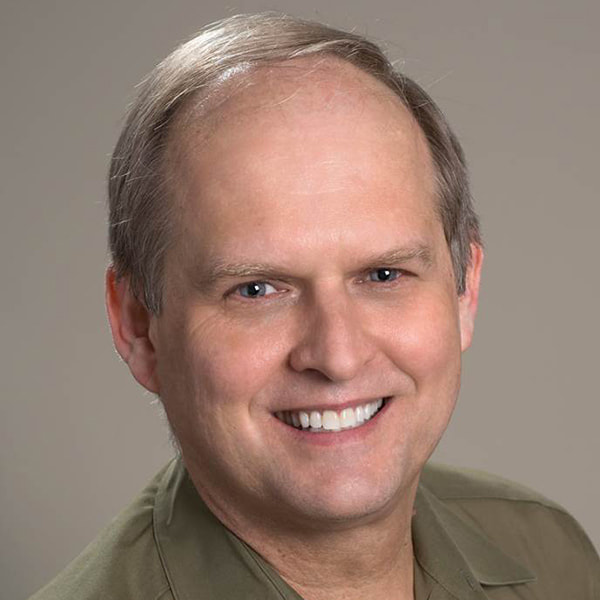
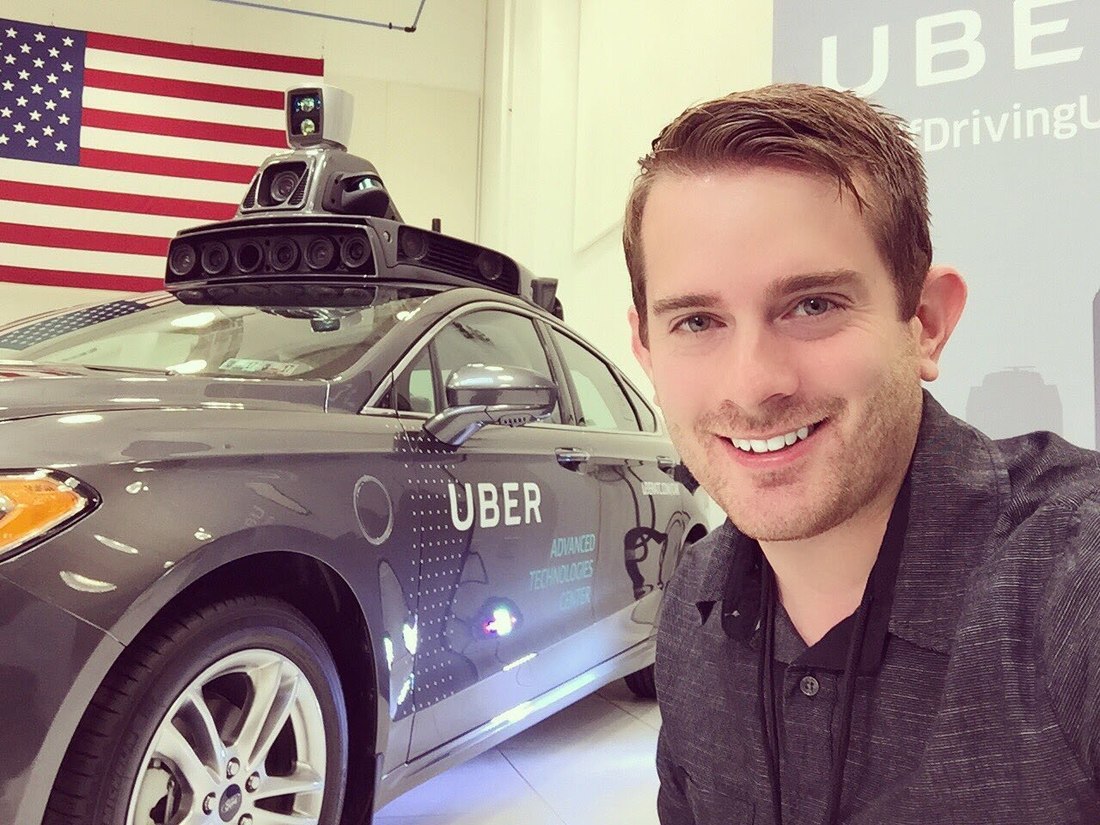
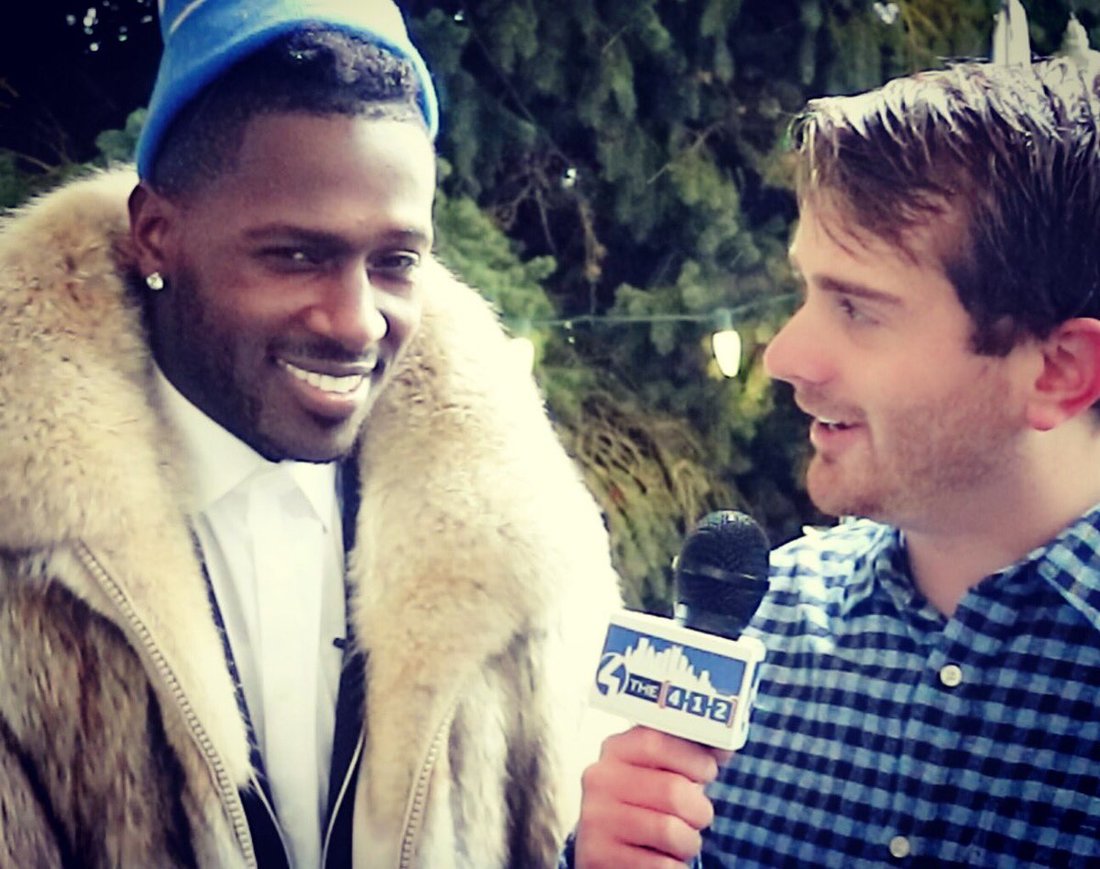

 RSS Feed
RSS Feed